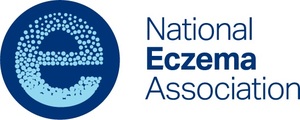NEA's Eczema Awareness Month 2021 Explores The Heterogeneity Of This Life-altering Skin Disease That Burdens 1 In 10 Adults And Children In The USA
Throughout October's Eczema Awareness Month, the National Eczema Association (NEA) is offering free virtual educational programs, patient/caregiver support, resources, and engagement activities for the diverse eczema community and the public
NOVATO, Calif., Oct. 1, 2021 /PRNewswire/ -- While 31.6 million adults and children in the US 1, 2 suffer from the chronic, non-contagious and often debilitating inflammatory skin disease known as eczema, the daily impact and overall burden for each individual can differ greatly from person to person and within a person's lifetime, reports the National Eczema Association (NEA), in connection with October's Eczema Awareness Month.
Highlighting the variability and individuality of eczema as revealed in this powerful new video, this year's awareness campaign focuses on the diversity of experiences of living with and caring for eczema. As part of this multi-faceted effort, NEA is empowering the eczema community to share their unique experiences through stories and images via social media using #thisismyeczema, #1in31Million, the ongoing campaign hashtag, #UnhideECZEMA, and others. Each week in October will zero in on a different aspect of eczema:
- Week 1 (10/1-10/3/2021): Heterogeneity
- Week 2 (10 4-10/10/2021) Triggers and Types
- Week 3 (10/11-10/17/2021) Burden of Disease
- Week 4 (10/18-10/24/2021) Treatment
- Week 5 (10/25-10/31/2021) Support and Shared Decision-Making
Eczema Facts
- Eczema refers to a group of chronic and acute symptoms that typically cause skin itch, sleep disturbance, inflammation, pain, and/or a rash-like appearance.3
- There are seven different types of eczema, in varying degrees of severity, and it is possible to have more than one type.
- People of all races, ages, and skin types suffer from eczema1:
- Caucasian – 11%
- African American/Black – 10%
- Asian or Pacific Islander – 13%
- Native American – 13%
- Eczema has the highest effect on disability-associated life years for patients with skin diseases worldwide.4
- Recent studies have suggested that people with Atopic Dermatitis (AD), the most common form of eczema, are up to 44% more likely to exhibit suicidal ideation, and 36% are more likely to attempt suicide. 5, 6, 7, 8, 9
- Nearly 40% of patients with eczema reported that they turned down a job or an educational opportunity due to their disease. 10,11
- Nearly 5.9 million workdays annually are lost due to eczema. 12
- The annual economic burden of eczema, including direct medical costs, indirect costs from lost productivity, and quality of life impacts, is conservatively estimated at $5.3 billion. 13
Learn more eczema facts here.
For the eczema community, this is an unprecedented era of promise. NEA President and CEO Julie Block notes, "As our collective understanding of the complex, dynamic and individualized nature of eczema continues to evolve, we are buoyed by a surge in scientific interest and the prospect of targeted new treatments in development to help a diverse array of eczema sufferers."
NEA's Eczema Awareness Month 2021 is supported in part by the following sponsors:
AbbVie; Sanofi; Eli Lilly; Incyte; Dermavant; Earth Mama, and CeraVe.
About the National Eczema Association
Founded in 1988, the National Eczema Association (NEA) is a 501(c)(3) nonprofit and the largest patient advocacy organization serving more than 31 million Americans who live with eczema and those who care for them. NEA provides programs and resources to elevate the diverse lived experience of eczema, and help patients and caregivers understand their disease, actively engage in their care, find strength in one another, and improve their lives. NEA advances critical eczema research and partners with key stakeholders to ensure the patient voice is represented and valued in education, care and treatment decision-making. Learn more: NationalEczema.org.
References
1. Hanifin JM, Reed ML, Eczema Prevalence and Impact Working Group. A population-based survey of eczema prevalence in the United States. Dermatitis. 2007;18(2):82-91.
2. Silverberg JI, Hanifin JM. Adult eczema prevalence and associations with asthma and other health and demographic factors: a US population-based study. J Allergy Clin Immunol. 2013;132(5):1132-1138
3. More Than Skin Deep Collaborative. (2020). Understanding the Lived Experience of Eczema: The "Voice of the Patient" Report on the Eczema Patient-Focused Drug Development Meeting. Retrieved from http://www.morethanskindeep-eczema.org/
4. Karimkhani C, Dellavalle RP, Coffeng LE, et al. Global Skin Disease Morbidity and Mortality: An Update From the Global Burden of Disease Study 2013. JAMA Dermatol. 2017;153(5):406-412.
5. Sandhu JK, Wu KK, Bui TL, Armstrong AW. Association Between Atopic Dermatitis and Suicidality: A Systematic Review and Meta-analysis. JAMA Dermatol. 2019;155(2):178-187.
6. Patel KR, Immaneni S, Singam V, Rastogi S, Silverberg JI. Association between atopic dermatitis, depression, and suicidal ideation: A systematic review and meta-analysis. J Am Acad Dermatol. 2019;80(2):402-410.
7. Ronnstad ATM, Halling-Overgaard AS, Hamann CR, Skov L, Egeberg A, Thyssen JP. Association of atopic dermatitis with depression, anxiety, and suicidal ideation in children and adults: A systematic review and meta-analysis. J Am Acad Dermatol. 2018;79(3):448-456 e430.
8. Drucker AM, Thiruchelvam D, Redelmeier DA. Eczema and subsequent suicide: a matched case-control study. BMJ Open. 2018;8(11):e023776.
9. Halvorsen JA, Lien L, Dalgard F, Bjertness E, Stern RS. Suicidal ideation, mental health problems, and social function in adolescents with eczema: a population-based study. J Invest Dermatol. 2014;134(7):1847-1854.
10. Chung J, Simpson EL. The socioeconomics of atopic dermatitis. Ann Allergy Asthma Immunol. 2019;122(4):360-366.
11. Holm EA, Esmann S, Jemec GB. The handicap caused by atopic dermatitis–sick leave and job avoidance. J Eur Acad Dermatol Venereol. 2006;20(3):255-259.
12. Silverberg JI. Health Care Utilization, Patient Costs, and Access to Care in US Adults With Eczema: A Population-Based Study. JAMA Dermatol. 2015;151(7):743-752.
13. Drucker AM, Wang AR, Li WQ, Sevetson E, Block JK, Qureshi AA. The Burden of Atopic Dermatitis: Summary of a Report for the National Eczema Association. J Invest Dermatol. 2017;137(1):26-30
SOURCE National Eczema Association

Related Links
WANT YOUR COMPANY'S NEWS FEATURED ON PRNEWSWIRE.COM?
Newsrooms &
Influencers
Digital Media
Outlets
Journalists
Opted In







Share this article